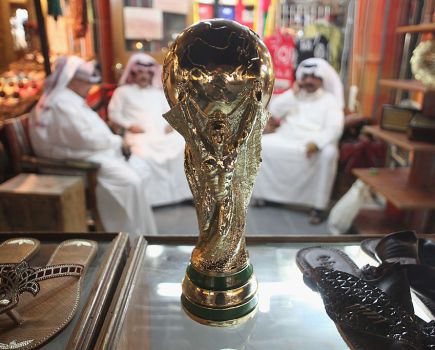 Jerome Valcke flies in to Rio de Janeiro today ready for a face-to-face with his toughest critics but fired by increasing irritation at Brazil’s tardy preparations for the 2014 World Cup finals.
Jerome Valcke flies in to Rio de Janeiro today ready for a face-to-face with his toughest critics but fired by increasing irritation at Brazil’s tardy preparations for the 2014 World Cup finals.
FIFA’s secretary-general had been due to address a football conference in Zurich. Instead he will be answering questions from Brazilian MPs who have decided – ridiculously late in the day – to try to throw as many procedural spanners in the works as they can manage.
If strikes on the stadia sites were not enough, the MPs are engaged in what appears to be a concerted filibuster in which a number, clearly, are grand-standing to suit their own personal and political and promotional agendas.
The excuse is the proposed text of the Lei Geral da Copa do Mundo de 2014 – the so-called ‘World Cup Law’ – which provides the legal framework for the hosting of the finals in Brazil. Populist themes are ticket prices, alcohol sales and a crackdown in pirate merchandise.
The barely-supressed corporate anger of FIFA and personal irritation of Valcke have been emerging ever more clearly in his comments to the Brazilian media. For example, he told the magazine Epoca: “We have been talking about this law since 2007 and now it seems we are still at the beginning.”
Valcke will have the opportunity to meet the new Sports Minister Aldo Rebelo, who has succeeded scandal-hit Orlando Silva. Rebelo is an interesting character, an occasional journalist and critic-turned-friend of Ricardo Teixeira (an intriguing personal journey).
Rebelo is something of a nationalist, as emerged during his campaign to resist the introduction of foreign words into the Portuguese language. He will not find Valcke sympathetic if he wishes to ‘Brazilian-ise’ the World Cup. As Valcke says: “The World Cup is not a Brazilian event. It’s organised by FIFA for the entire world.”
This is the crux of the matter. Valcke will find MPS set upon opposing what some have described as FIFA’s wish to “create a state within a state.”
Valcke will resist. As he says: “The World Cup is ‘only’ organized in Brazil with 31 other teams from all around the world. It is an international event organized by FIFA. The World Cup really does mean ‘the world.’
“There will be a billion people watching the final. Hundreds of millions of people watching the Opening Match. It can not be seen as a national event, can not be seen as a purely Brazilian, can not be seen as an event controlled by a single country.”
However, to meet a too-rapidly-approaching deadline may demand compromise on both sides.
Valcke says: “What we want is a final text [of the law], as we agreed last April when I met President [Dilma] Rousseff. We need to work on organizing the tournament and stop arguing about the law.
“The original deadline to conclude discussions was back in 2009 but was delayed from month to month and then to every six months. This past April we at FIFA and the then Sports Minister, Orlando Silva, concluded a text to go to President Dilma . . . and then, for various reasons, still nothing was done. Now here we are again.
“We really need to wrap this up.”
FIFA has agreed to the standard Brazilian concession of half-price tickets for pensioners and proposes to cover the cut-price option for students by restricting lowest-price first-round tickets to only Brazilians. This would follow the pricing and sales format used in South Africa.
How anyone can prevent cheap or half-price tickets being re-sold on the black market is another matter, of course, which no-one has yet addressed.
Valcke believes that most of the stadia will be ready on time even if the jury remains out on quite which ones will be available for the ‘warm-up’ Confederations Cup in 2013.
FIFA and Valcke try to avoid comparisons but Brazil’s lethargy contrasts badly with the work already under way in Russia which was chosen ‘only’ last December to host the 2018 finals.
As Valcke says, with no little very pointed irony: “The Russians might have thought that they would relax and celebrate a little. But no. They thought they should begin work immediately, instead of wasting time.”






